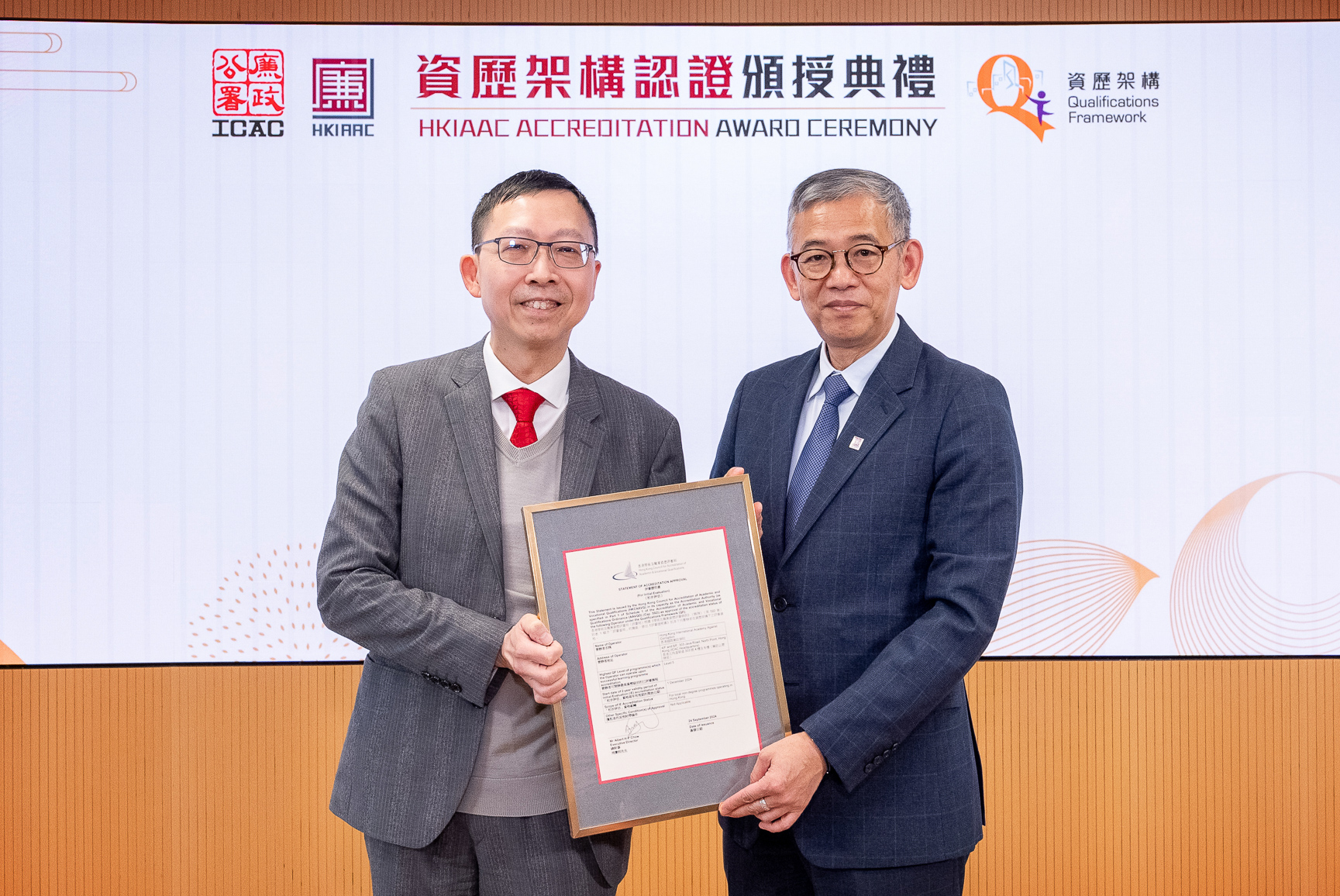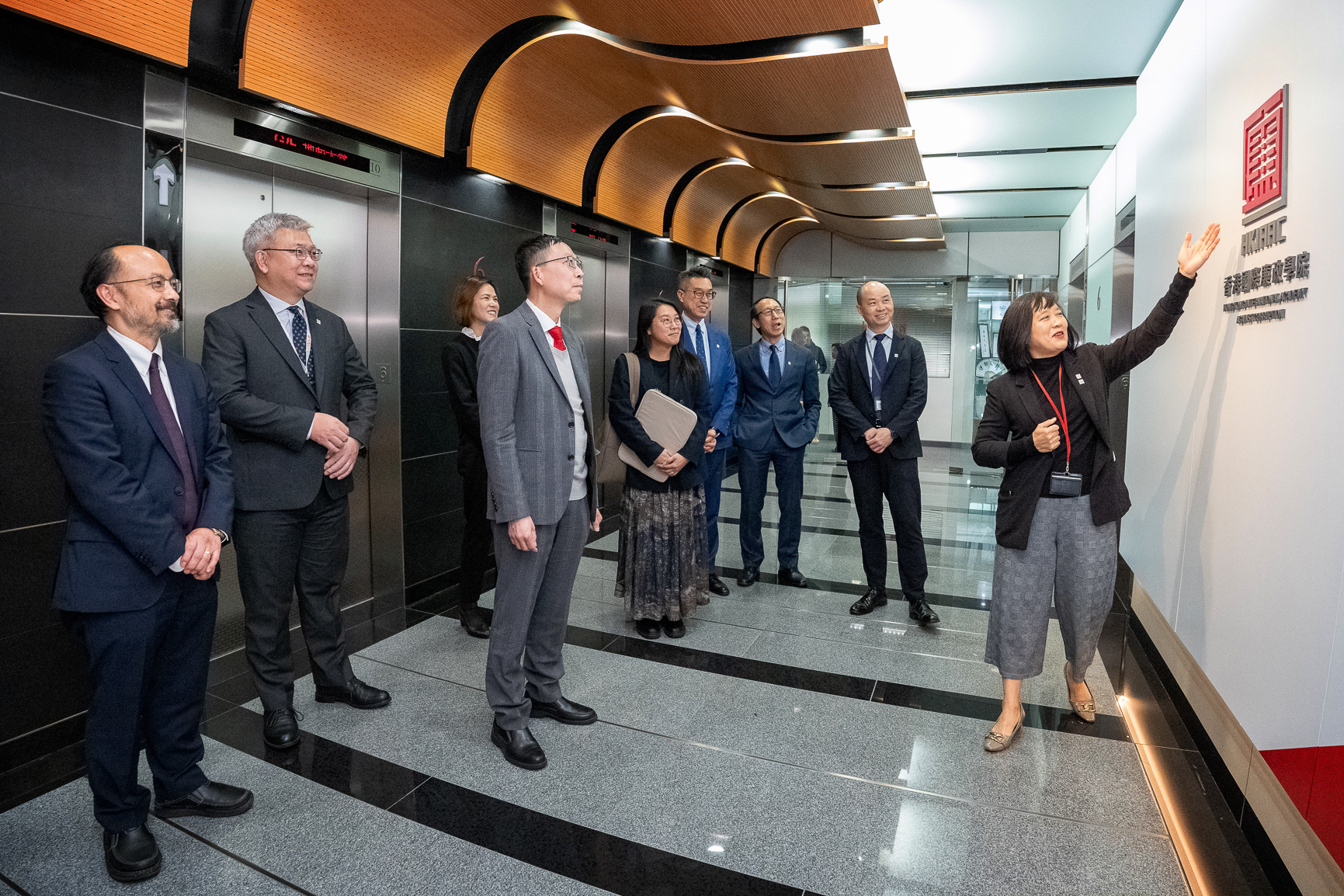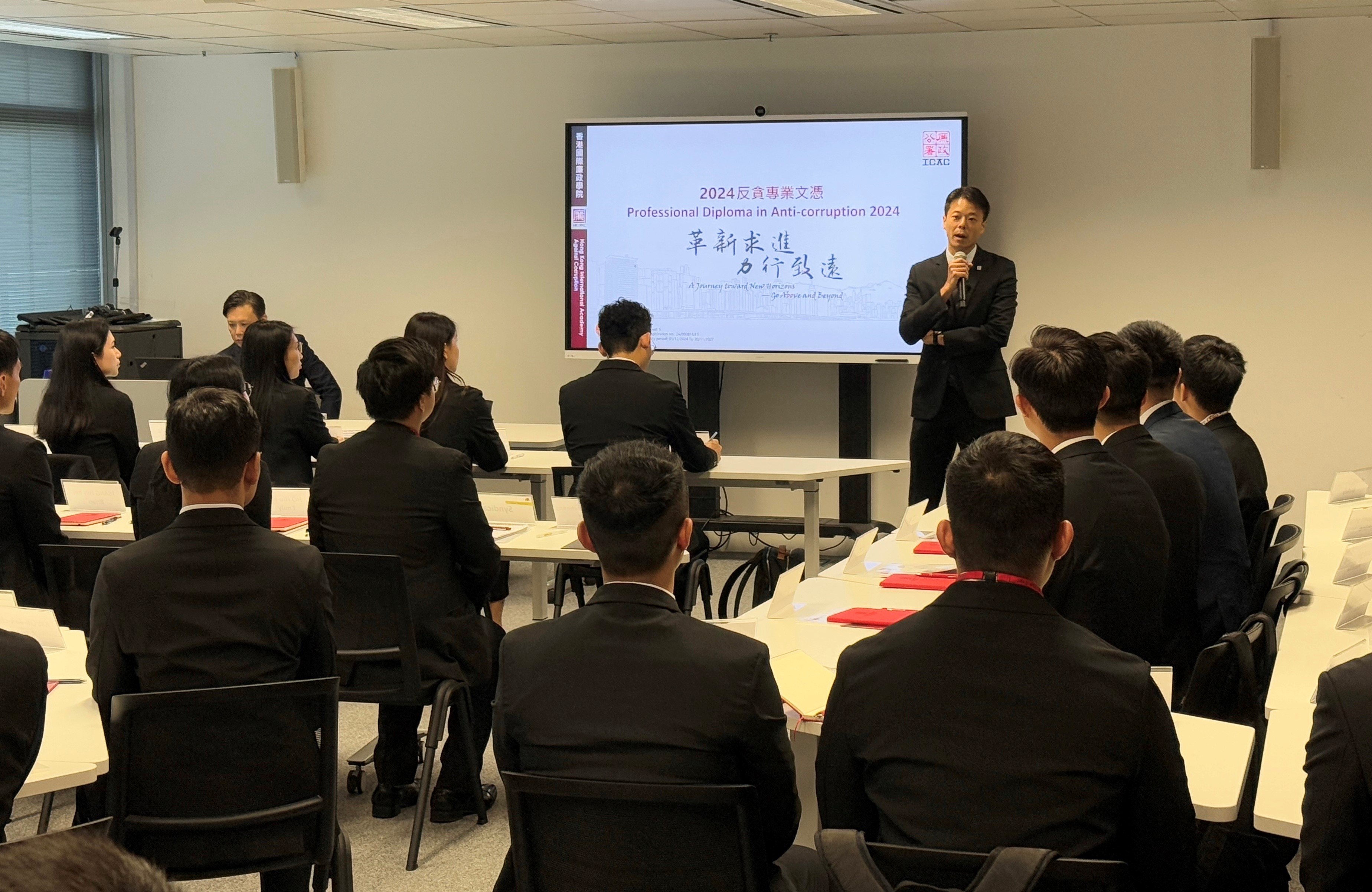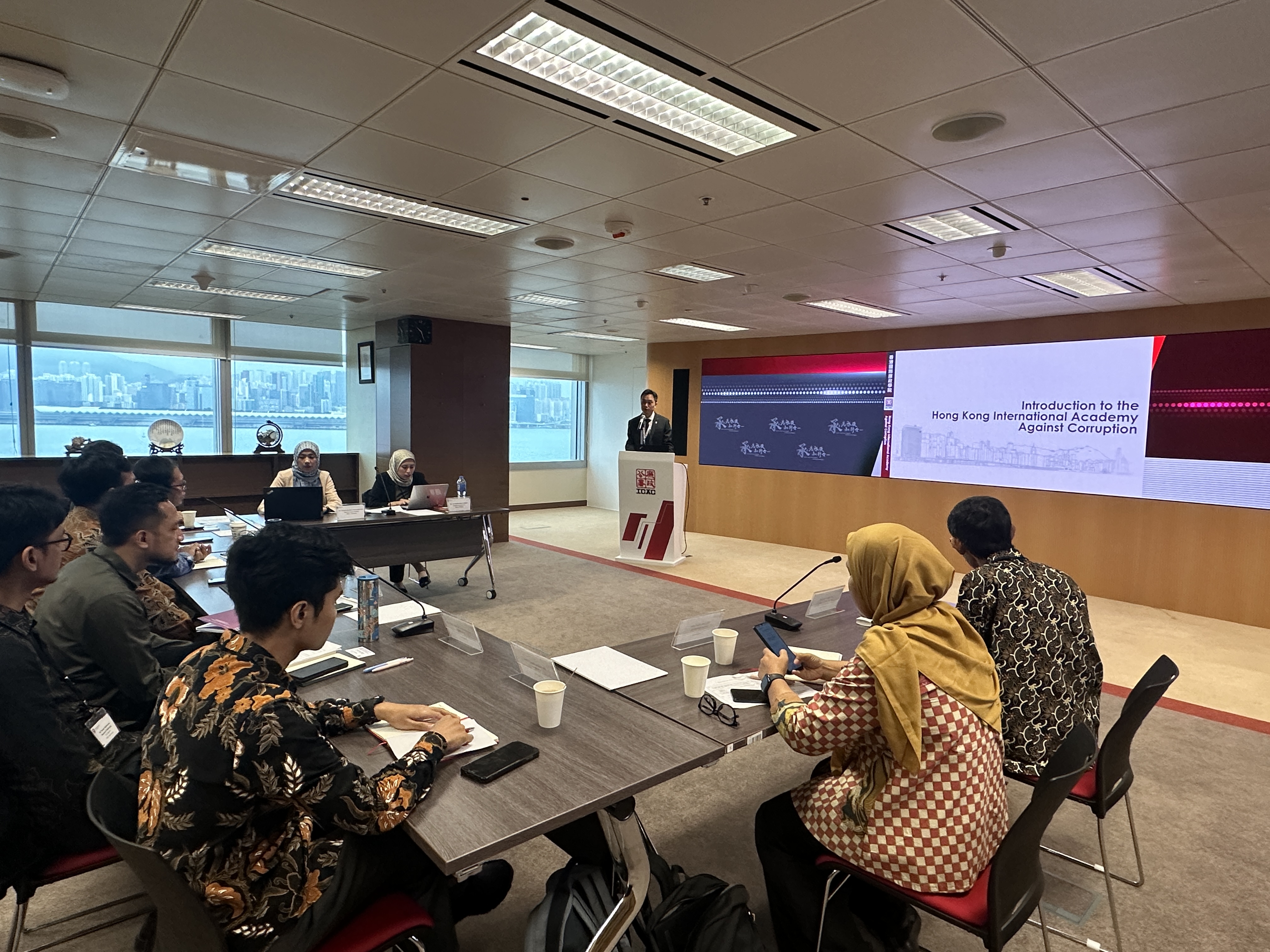HKIAAC and ICAC induction course accredited QF level 5, setting benchmark for global anti-graft professionals
2025-2-19
The Hong Kong International Academy Against Corruption (HKIAAC) established by the ICAC early last year as well as the Commission’s induction course recently garnered a Level 5 accreditation in the Qualifications Framework (QF), further strengthening the professionalism and international recognition of anti-graft training provided by the ICAC. Presenting the accreditation to the Commission, the Hong Kong Council for Accreditation of Academic and Vocational Qualifications (HKCAAVQ) acknowledged that the ICAC had set a benchmark for the standard of global anti-corruption professionals and that the council looked forward to collaborating with the Commission to further contribute to the global integrity training initiative.
At the HKIAAC Accreditation Award Ceremony held earlier, Woo Ying-ming, ICAC Commissioner, noted that the HKIAAC’s achievement of being accredited QF Level 5 (equivalent to a Bachelor’s Degree) in its inaugural year was of great significance. He commended ICAC officers for their exceptional efforts in setting up the HKIAAC as well as preparations for the stringent review conducted by the HKCAAVQ. Their hard work made it possible for the HKIAAC to win recognitions both locally and in international communities shortly after its establishment.
At the ceremony, Albert Chow, Executive Director of the HKCAAVQ, remarked that the HKIAAC and the ICAC’s Professional Diploma in Anti-Corruption received the credential of QF level 5 upon its first application. He added that it was unprecedented in the vocational and professional sectors and a milestone achievement of the HKIAAC.
Chow added that in recent years, the HKCAAVQ had been actively pursuing global market opportunities and considered the ICAC a strategic partner. As the ICAC had set a benchmark for global anti-corruption professionals during the accreditation review, the HKCAAVQ would welcome opportunities to collaborate with the ICAC to further contribute to the cause of integrity training locally as well as in the national and global contexts.
As the statutory accreditation body in Hong Kong, the HKCAAVQ ensures that its quality assurance work meets international standards. Notably, the HKCAAVQ is the first organisation outside the European Higher Education Area (EHEA) and Europe to receive accreditation from both the European Association for Quality Assurance in Higher Education (ENQA) and the International Network for Quality Assurance Agencies in Higher Education (INQAAHE).
Also in attendance at the ceremony were two External Advisors of the HKIAAC –Professor Alfred Ho Tat-kei, Dean of the College of Liberal Arts and Social Sciences of the City University of Hong Kong; and Professor Simon Young, Associate Dean (Research) of the Faculty of Law and Ian Davies Professor in Ethics and Deputy Director for Education and Development of Research Integrity of The University of Hong Kong. The two scholars had provided valuable advice on the HKIAAC’s professional development and training standards since the preparatory stage of the HKIAAC.
Paul Lau Chi-ho, Director of the HKIAAC, remarked that with the accreditation, the HKIAAC would be able to provide learning experience and skills training through a more structured and comprehensive approach. While internally it could assist ICAC officers in addressing the increasingly complex graft-fighting work, on the international level it would enable the Commission to share Hong Kong’s successful experience in combating corruption and foster global integrity development.
The accreditation came into effect on December 1, 2024 and the first accredited Professional Diploma in Anti-Corruption induction course commenced in the same month. Around 50 new recruits from the Operations Department, Corruption Prevention Department and Community Relations Department are currently undergoing a 20-week training. This comprehensive curriculum covers local, national, and international anti-corruption frameworks, as well as law enforcement, prevention, and education. The training aims to equip participants with professional knowledge and skills in the effective fight against corruption.




